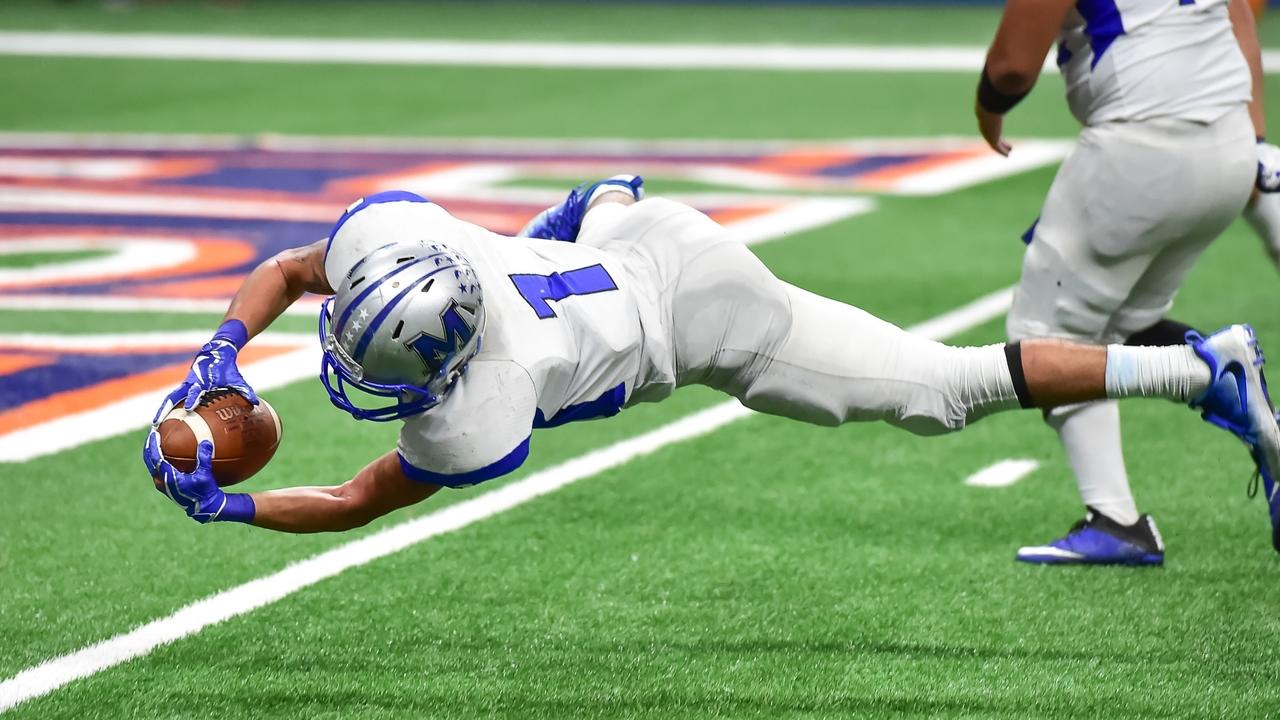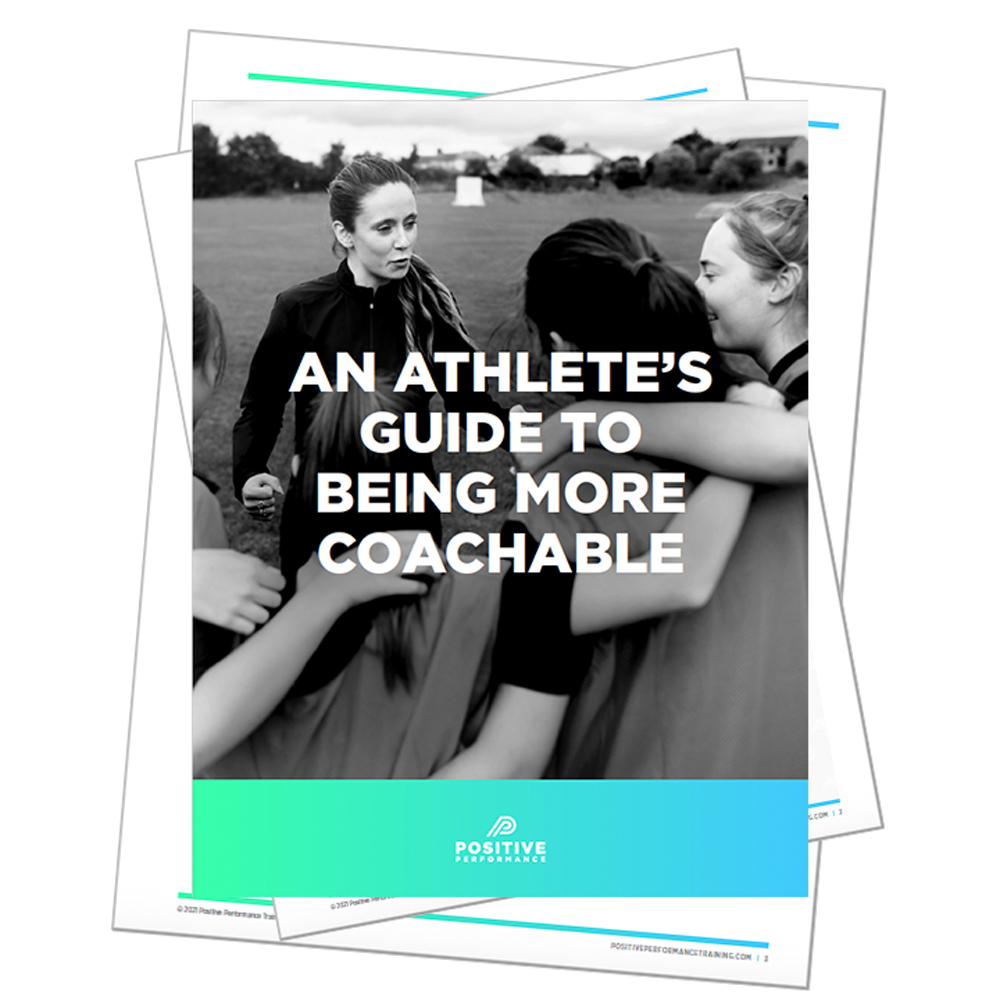COMMUNITY BLOG: How To Compete At Your Best (Regardless Of Your Opponent)
Feb 04, 2020
You’re midway through the season and you’re going up against a team with a far worse record. Last time you played this team, you OUTplayed them. Your team is going into the game confident (maybe even a little cocky) and all-but certain they’ll get that W. From every angle, this game should be a shut out.
But as the game progresses, you notice:
- Your athletes are making careless mistakes
- You’re team is getting intercepted/rebounded/fouled out
- Tempers are running high
- Your team is inconsistent - timid one moment, overly aggressive the next
As the game continues, tensions rise high and frustration, disbelief, even a little panic bubbles to the surface.
At the end of the game, you’ve lost… or maybe you’ve won. The score isn’t really the point. The point is that you played poorly.
You played down to your opponent.
When we asked our Mental Training for Coaches Facebook group, “What do you do when your team plays down to an opponent?”, we received a flood of advice.
Two things were clear:
- This is a common issue.
- Our coaches give great advice.
In this blog, we’ll give you some tips to help you prevent this phenomenon and manage your response to help your team play competitively (regardless of your opponent).
Get to the Root of the Issue
Most commonly the root of the issue comes down to the lack of mental preparation for the game; namely, arousal management.
Arousal management is often the reason athletes (and coaches, for that matter)...
- Play great ½ of the game and poorly the next
- Score 30 points one game and 10 the next
- Feel prepared for the big game, but lackluster for a minor game.
If you don’t proactively manage your arousal level before a game, you’re allowing yourself to be vulnerable to uncontrollables and curveballs (no pun intended).
Your “Arousal Level” is your state of readiness. In simple terms, it is a measure of your internal energy level (butterflies). It includes:
- Psychological - Anger, confidence, fear, nervousness, aggression, etc.
- Physiological - Pulse, breathing, temperature, etc. elements.
Everyone has an ideal level of arousal to execute their best performance. If you have too much energy, you’ll be nervous, lose confidence, and lose your game time ‘flow’. If you have too little energy, you’ll be flat and struggle to concentrate and execute.
Prepare To Compete
Several coaches in our Facebook group noted that playing hard starts before a game. Preparing your mind to compete is key.
In fact,
It’s important to prepare for an ‘easy’ game the same way you would prepare for any other game.
Coach Russel Matthews explains his routine for helping to get everyone’s head in the game. “[I] give them the talk before about how they should play regardless of the score or talent.”
To Coach Ben Nelson, the first step is to “identify what being at their best looks like, feels like, sounds like.” He goes on to explain how that keeps his team anchored; saying, “Once they know that, specific feedback and a healthy team environment should correct it.”
Coach Stacie Mahoe encourages coaches to get specific. She advises, "Help them come up with specific things they WILL do so they have a plan [...] Rather than leaving them to react."
Coach Skyler M shares how she helped her team prepare for their first regional tournament. She writes, “I had our girls take some time to discuss and write down what ‘winning’ looks like for our team [...] They came up with 3 words that they started chanting before each game to get pumped up.” Skyler goes on to say proudly, “We [had] only one challenging match, but they played consistently to OUR level [...] and improved, even against lesser competition.”
Create Challenges
Whether you’re ahead in the game, or you’re simply trying to fire up your team, use games as learning opportunities by creating challenges within the game. This is a great time to encourage your athletes to be brave and take risks to grow as athletes.
In the words of Coach Trevor Bodine, “Give them games within the game. Rebound goals, deflections, steals, etc. Coach Fred Wallace also encourages coaches to “focus on a particular thing (running a tandem, triple quick, etc.) that requires all parts of the game to work well.” Coach John Allison offers a similar suggestion, “I give them goals, like so many rebounds or steals [...] before the next time out or the end of the quarter.”
Coach Matt Banks summarizes it well, “Work plays that are hard to execute and you’ll need to win against tougher opponents.”
Rotate Players
Another way to create challenges within the game and keep everyone on their toes is to rotate players.
Coach Banks takes a big picture approach, offering this suggestion, “Play the players you need to develop and will need in tough games.” Coach Biko B. Freeman agrees, saying, “I put in my guys that don’t get to play very much, the ones that practice hard every day.” Coach Freeman explains, “I know that they will give me effort.”
Encourage Ownership
Many of our coaches suggest asking questions that encourage critical thinking and ownership over the game. Instead of preaching a your team about what to do, remind them that they KNOW what to do. Ask them to walk you through what is working and what isn’t working.
Coach Jamie Elizabeth shares her questions of choice, “What did you see there? What adjustments could have been better?” She goes on to explain, “If they’re willing to pay attention to the game and work tactical IQ then they’ll get it quicker.”
Coach Matthews tells us that he allows his team to dissect their performance before he addresses them. That way, they have a lot to offer and he can tie in what the athletes and coaches think together. He shares, “Usually, [we’re all] on the same page. [...] As coaches, we had to give up a little control to let them really own their performance. This isn’t always easy to do, but rewarding if you can do it!”
In-line with what we teach at Positive Performance, Coach Elizabeth believes that these critical thinking drills should be used in practice as well so that these thoughts become reflexive. She advises that coaches tell their players to huddle up during practice to explain what’s going well and what is not going well, she follows up with her athletes, “Do we have any ideas to try to fix it? What are we going to try?” She explains, “[Asking the] same questions will make them start to think about those answers on their own before you even have to ask them. [They’ll] do it at games too. If you empower them to think and speak and problem solve, they will.”
Tie it to Core Values
Coach Elizabeth wisely ties game performance into core values. Here she gives our favorite piece of advice from the thread. When she notices her team playing poorly, Coach Elizabeth says, “[I] remind them of our core values.”
She continues,
“If [they’re being overconfident] and not executing, I frame it as a lack of respect for their opponent, also a violation of our core values.”
Coach Elizabeth reminds her athletes, “Every game starts at 0-0 and every outcome is earned in the execution of the details; do the little things right.”
Well said, Coach.
This is by no means an exhaustive list of strategies for getting your team to play HARD regardless of the competition, but we do hope that it helps you think critically about what's really going on when your team doesn't play how you know they can.
As a coach, help your team prepare for competition, teach them to respect their opponent and make the most of their time in competition. Help them think critically about competition beyond just winning or losing. Remind them of your core values and of how this game fits into the bigger picture.
Thank you to all our coaches who contributed to this discussion!
Introducing: 13 Steps to Being Coachable

As a coach, you know that the best athletes are coachable. But what does that look like on a daily basis? Our printable checklist takes the ambiguity out of what it means to be coachable and clearly defines what it looks like on a daily basis.
To get the most from this poster, we suggest you:
- Print it out
- Review it with your team
- Have athletes + coaches sign it
- Hang it in your locker room
It'll act as a reminder to your athletes to be coachable and as a reminder to you to reward coachability.
Click the link to download your free copy now!
Join Our Community Of 10,000+ Coaches
Dive deep into the world of mindset coaching. Our no-frills, tough-love advice, easy-to-implement guides, and insightful blogs are specifically designed to help you and those you lead to tap into your next level.




